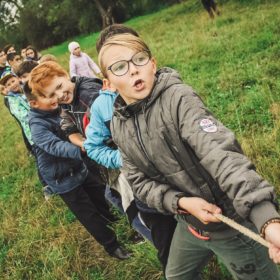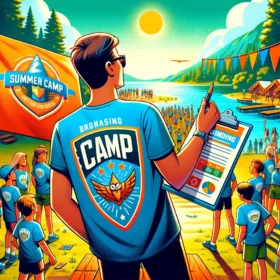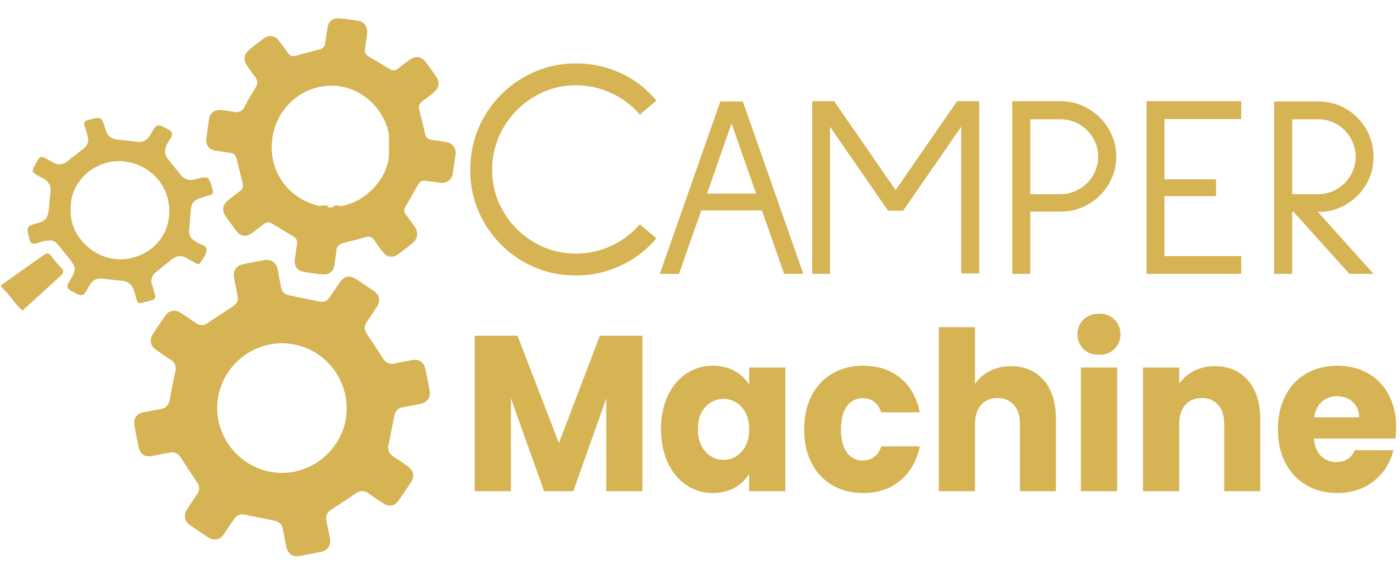The Bear
LEADERSHIP LESSONS FROM THE BEEF
Download The Slide Deck from Our ACA TRi-State Session
Watch Eric Wittenberg teach camp leadership using examples from "The Bear"
By integrating these camp leadership lessons from “The Bear,” camp directors can create a more effective, respectful, and cohesive camp environment, ultimately leading to a better experience for both staff and campers.
Camp Leadership Lessons Inspired by "The Bear"
Running a summer camp shares remarkable similarities with running a high-pressure restaurant, as vividly depicted in the hit show “The Bear.” Here are key leadership lessons for camp directors inspired by the show.
- Foster Mutual Respect: The “Yes Chef” Principle
- Uphold High Standards: Attention to Detail Matters
- Continuous Improvement: Embrace Training and Growth
- Cultivate a Supportive Culture: Build a Cohesive Team
- Adaptability and Problem-Solving: Be Ready to Step Up
- Effective Communication: Running Notes and Intel
- Lead to Serve: Servant Leadership
In “The Bear,” the term “Yes Chef” symbolizes respect and unity within the kitchen. At camp, similar respect can be cultivated by using titles that dignify every role. Avoid terms like “Junior Counselor,” which can feel belittling. Instead, use titles like “Group Leader” or “Bus Captain” to elevate the perception of responsibility and importance among staff.
Just as every detail matters in a high-end restaurant, maintaining high standards at camp is crucial. Encourage your team to pay attention to the small things, like clean and correctly printed name tags, as these details collectively contribute to a professional and caring camp environment.
Like sending characters to culinary school or apprenticeships in “The Bear,” invest in your staff’s development. Identify strengths and provide opportunities for growth, whether through external courses, workshops, or internal training sessions. This investment pays off by elevating the overall quality and dedication of your team.
Creating a culture where everyone supports one another is essential. In “The Bear,” team members show up for each other, both professionally and personally. Similarly, foster a camp environment where staff feel supported, valued, and part of a cohesive unit. Organize team-building activities and encourage social interactions outside work hours to strengthen bonds.
In moments of crisis, as seen in the show’s “freezer lock” scenario, encourage staff to step up and take responsibility. Create scenarios during training that prepare your team for unexpected challenges, promoting a mindset of adaptability and proactive problem-solving.
Implement a system for running notes and sharing intelligence within the camp. Just as restaurant staff communicate special requests and observations, camp staff should have a mechanism for sharing important information about campers and operations to ensure a seamless and attentive experience.
Adopt a servant leadership approach, where the primary goal is to serve others. Just as Richie transitions to a servant leader in “The Bear,” camp directors should prioritize the needs and growth of their staff and campers, fostering an environment of support and development.
Want to see what we've been up to lately?
Check out recent blog posts and some podcasts featuring CMO.


Marketing to Non-Traditional Summer Camp Families: ACA National 2020

Maximize Your Brand’s Potential: Crafting and Utilizing an Effective Brand Guide




